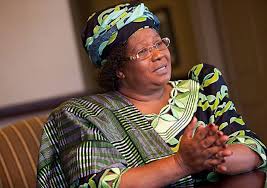Banda’s biggest obstacle is the same one that helped end her presidency in 2014: the “Cashgate” scandal, Malawi’s largest-ever corruption case.
She says she is the only leader who can fix the mess. Critics say the mess started on her watch.
By Collins Mtika
With Malawi teetering on the edge of economic collapse, the September 16, 2025 election is no ordinary vote.
It is a reckoning with the past, and former President Joyce Banda is making a bold bid to reclaim the country’s highest office.
Her candidacy forces Malawians to confront a hard question: can a leader shadowed by scandal be trusted to rescue a nation in freefall?
For millions, daily life is a battle for survival: hours-long queues for a few litres of fuel, maize and cooking oil priced far beyond reach, and a kwacha so weak it can barely buy the basics.
The economy is in one of its deepest crises in decades, plagued by foreign exchange shortages, inflation projected at 29% for 2025, and an El Niño-induced drought that has left one in four Malawians facing acute food insecurity.
Three heavyweights, one spotlight
Against this backdrop, voters will choose between three political heavyweights: President Lazarus Chakwera, former president Peter Mutharika, and 75-year-old Joyce Banda, Malawi’s first female leader and Africa’s second.
But it is Banda’s audacious comeback that has captured national attention.
Her campaign is built on a defiant message: “I have done it before; I’m the best.”
On the stump, she draws direct parallels between today’s crisis and the turmoil of 2012, when she assumed the presidency after the sudden death of Bingu wa Mutharika.
Back then, she moved quickly, ending fuel shortages, easing blackouts, and restoring ties with international donors.
“Malawi is almost at the same point it was when I took over power,” she says, casting herself as the only candidate with a proven record of crisis management.
Her People’s Party (PP) manifesto, launched in July 2025, focuses on economic recovery, youth employment, and women’s empowerment, a direct appeal to a nation where over 70% live on less than $2.15 a day, and trust in the current administration has been drained by broken promises.
Chakwera’s failure to stabilise the economy, compounded by the IMF’s cancellation of a critical Extended Credit Facility in May 2025 over fiscal indiscipline, has opened the political door for Banda to position herself as the alternative.
The shadow of ‘Cashgate’
Yet Banda’s biggest obstacle is the same one that helped end her presidency in 2014: the “Cashgate” scandal, Malawi’s largest-ever corruption case, in which hundreds of millions of dollars were looted from state coffers through fraudulent payments.
The scandal broke during her tenure, and Banda insists she ordered the audit that exposed it.
She was never convicted, but her opponents have spent more than a decade tying her administration to the theft. “These are lies meant to destroy her image,” says a senior PP official.
In an election where corruption ranks among voters’ top concerns, the scandal’s shadow is long. Religious leaders have urged Malawians to reject corrupt politicians, a warning that cuts across all major candidates, but one Banda cannot afford to ignore.
A fragmented battlefield
The 2025 race is unfolding in a fractured political arena.
The Tonse Alliance that swept Chakwera to power in 2020 has collapsed, following the death of Vice President Saulos Chilima in a 2024 plane crash and the withdrawal of his United Transformation Movement. Banda’s PP has also broken away, leaving Chakwera politically isolated.
Under Malawi’s 50%+1 rule, an outright first-round victory is unlikely.
Banda’s immediate challenge is to survive the split vote and emerge as a viable contender in the second round, a scenario that may require strategic alliances, even with unlikely partners.
The youth vote could be decisive, but it is unpredictable.
Many young Malawians, disillusioned by years of political failure, have no personal memory of Banda’s leadership but know her reputation.
She has made youth entrepreneurship a centrepiece of her campaign, but converting that into votes will mean overcoming deep apathy.
Democracy under pressure
The Malawi Electoral Commission is facing allegations of bias from opposition parties, while civil society groups warn of rising political tensions and possible violence.
The judiciary, which famously annulled the 2019 presidential election, and the professional military remain trusted institutions.
But the ultimate test will be whether the 2025 vote can be free, fair, and credible in an atmosphere of economic and political strain.
The choice ahead
As September 16 approaches, Malawians face a stark choice: embrace Banda’s promise of experienced leadership, or reject her over unresolved questions from her past.
A victory would mark one of the most remarkable political resurrections in Africa. A defeat would confirm that, for many Malawians, some political ghosts cannot be trusted to return.

